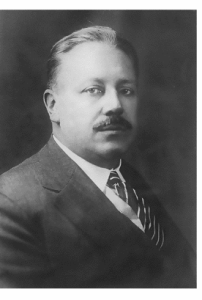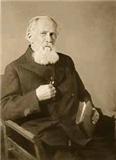N. Zhirov
Guignard, Maurice-Erwin (L)
 Maurice-Erwin Guignard (1920-2001) was a French amateur linguist, who claimed, in a 1962 privately published booklet[1109], to have deciphered the Etruscan language. Zhirov notes[0458.84] that Guignard thought that the Etruscans may have come from Atlantis, based on his interpretation of an Etruscan text.
Maurice-Erwin Guignard (1920-2001) was a French amateur linguist, who claimed, in a 1962 privately published booklet[1109], to have deciphered the Etruscan language. Zhirov notes[0458.84] that Guignard thought that the Etruscans may have come from Atlantis, based on his interpretation of an Etruscan text.
Egyptian Calendar, The
The Egyptian Calendar is central to the debate regarding the date of the Alantean war. At first sight it appears that Plato dated that event to 9,000 years prior to Solon’s visit to Egypt. However, since such a date conflicts with both archaeology and common sense, commentators have striven to reconcile the differences. Either the number is exaggerated, the unit of measurement is wrong, or both require revision. I’m inclined towards the latter.
The ancient Egyptians had three types of ‘years’, solar, lunar or seasonal(a). The first was based on the heliacal rising(b) of the star Sirius, the second was a count of the annual lunar cycles and the last was the number of seasons of which there were three in the Egyptian year. The lunar cycles or months were the means by which the Egyptian priesthood calculated the passage of time and since Solon received the story of Atlantis from Egyptian priests it is assumed by many that the 9,000 ‘years’ were in fact months. Apart from modern authorities, the use of lunar cycles by the Egyptians for calculating time was noted by Eudoxus of Cnidos (410- 355 BC) and also by Plutarch, Manetho, Herodotus and Diodorus Siculus.
Zhirov noted[458.375] that the lunar calendar was re-introduced into Egypt by the Arabs in 641 AD.
Some others, such as Radek Brychta and Rosario Vieni, have proposed that the number of seasons were used in a similar manner. Even more extreme was the contention of André de Paniagua who claimed that the date of Atlantis was recorded in Sothic cycles of 1,460 solar years each, which would push its time back 13 million years!
Nevertheless, there are many who still maintain that Plato’s 9,000 should be taken literally, even though neither Egypt nor Athens existed as structured societies at such an early date!
Atlantomaniac (m)
Atlantomaniac is the rather colourful term used to describe Atlantis believers who are ‘over-enthusiastic’ in their support for their pet theory. The earliest use that I can find is by James Bramwell in 1937 in his Lost Atlantis[195], who was describing the activities of a group who broke up a meeting in 1927 in Paris’ Sorbonne with ‘tear-gas’ as they objected to the views regarding Atlantis being expressed there(a).
*[Zhirov noted[0458.17] “that the interference of the atlantomaniacs has greatly harmed science, for it discredited the Atlantis problem in the eyes of many scientists.” Although he wrote this nearly half a century ago, it still holds true.]*
Mushketov, D.I. (L)
 Dmitrii Ivanovich Mushketov (1882-1938) was a Russian geologist who was greatly impressed by the work of Pierre Termier and voiced the view in the 1930’s that the Atlantis had been situated where we now have the Atlantic, which he believed was created in recent times by “subsidence and caving”.
Dmitrii Ivanovich Mushketov (1882-1938) was a Russian geologist who was greatly impressed by the work of Pierre Termier and voiced the view in the 1930’s that the Atlantis had been situated where we now have the Atlantic, which he believed was created in recent times by “subsidence and caving”.
He was described by Zhirov[0458.317] as the first Soviet geologist to express such firm belief in the existence of Atlantis.
Mushketov, along with some of his colleagues, was executed as part of Stalin’s purges.
Obruchev, Vladimir
Vladimir Obruchev (1863-1956) was a prominent Soviet geologist and had a  mineral, obruchevite, named in his honour. He was also one of Russia’s first science fiction writers, publishing Plutonia in 1915,>later published in 1924 and his Sannikov Land, also published in 1924. Susanne Frank has written a paper(a) on the science and mythology behind these stories.
mineral, obruchevite, named in his honour. He was also one of Russia’s first science fiction writers, publishing Plutonia in 1915,>later published in 1924 and his Sannikov Land, also published in 1924. Susanne Frank has written a paper(a) on the science and mythology behind these stories.
“This article analyses the popular novel Sannikov’s land (published in 1926) by the famous Russian and Soviet geologist Vladimir A. Obruchev (1863–1956). It asks how scientific discourse on the one hand, and literary, fictional discourse on the other interact in this text that tells the story of the discovery of an Arctic island, which a Russian merchant had asserted to have seen, but the existence of which never could be affirmed. Basing his novel exclusively on well-founded scientific (geological as well as anthropological) hypotheses, Obruchev polemizes with a whole range of earlier texts from J. Verne to K. Hloucha. Unfolding the story of the Russian expedition, Obruchev pursues the aim (1) to deconstruct the utopian myth of a paradise on earth beyond the Arctic ice in its countless varieties; (2) to show that ancient myths—like the myth of the ex- istence of warm islands in the Arctic—are a form of protoscientific insight that should be taken seriously by modern science and transformed into scientific knowledge; and (3) to suggest that the Arctic islands—really existing, supposed to exist or be doomed—from a geological point of view belong to the Siberian mainland and therefore to Russian/Soviet territory.”<
He was also a leading authority on the civilisations of the Gobi Desert.
He accepted that Plato’s story of Atlantis was ‘plausible’ and believed that from a geological perspective that the submergence of a large landmass in the Atlantic around 11,000 years ago was possible but probably not at the rapid rate recorded by Plato.
Zhirov informs us [0458.318] that after Obruchev’s death an unfinished paper relating to Atlantis was found which proposed that the submergence of Atlantis was brought about by the rising sea levels caused by the melting of the glaciers at the end of the last Ice Age.
Bibliographies of Atlantean Studies *
Bibliographies of Atlantean Studies are to be found in most books on the subject and on a number of internet sites. Understandably, these compilations are usually a reflection of the various authors’ theories and prejudices.
French
Arguably the best known Atlantis related bibliography was published in 1923 by Jean Gattefossé & Cladius Roux. It is reputed to contain 1,700 titles.
Bibliographie de I’Atlantide et des Questions connexes[0313].
Another French website with an extensive bibliography relating to mythology is:
http://racines.traditions.free.fr/bibliogr.pdf
English
http://www.history.navy.mil/research/library/bibliographies/atlantis-a-select-bibliography.html (Link broken)
German
Jürgen Spanuth’s Atlantis of the North[015] (German & English)
Thorwald C. Franke offers an extensive list of German language titles at
https://www.atlantis-scout.de/Kommentierte%20Atlantis-Bibliographie.pdf [currently being reconstructed]
Franke has also drawn up a list of what he considers to be the best introductory titles on the subject of Atlantis in both German and English.
https://www.atlantis-scout.de/atlantis_introduction.htm
https://www.atlantis-scout.de/atlantis_einfuehrung.htm
Rainer Kühne has published an impressive list of references to Atlantis in the scientific literature.
Parte II: Israel fue La Atlántida. Los errores geográficos Platón. Historia (archive.org) *
Italian
http://www.galileoparma.it/Bibliografia%20atla.html
Portuguese
A Portuguese bibliography has been compiled by Manuel J.Gandra
Mixed
Nikolai Zhirov’s Atlantis[458] has an extensive bibliography referring to works in English, Russian and other European languages.
Henry M. Eichner in his Atlantean Chronicles[287] offers a selection of titles in a dozen languages.
Atlantology
Atlantology as a distinct field of study is accepted by most to have begun with the works of Ignatius Donnelly, however flawed many of his ideas may have been. Since Donnelly, it has developed into a very complex multidisciplinary subject. Students of the topic are known today as Atlantologists although an earlier designation was Atlantists, a term now used to describe supporters of political and economic co-operation between the USA and Western Europe. The inventive Zia Abbas prefers to use the term ‘Atlantisology’!
N. Zhirov, the leading Russian Atlantologist, has offered the following formal definition of the subject: “It may be regarded as a department of the biogeography of the modern, Quaternary period (Anthropogen) of the Earth’s geological history, a department chronologically relating to the period of the emergence of intelligent man, a period directly preceding our historical epoch beginning with the last glaciation.” He believed that Atlantis was primarily a geological problem that could only be resolved through a study of the geological history of the Atlantic Ocean.
A less cumbersome definition might be “the study of all aspects of Plato’s references to Atlantis”
A forum dealing with Atlantology(a) and suggested parameters for its study may be found interesting by readers. I personally disagree with a number of the headings proposed for inclusion, such as ‘Rudolf Steiner’, ‘Ireland & Tara’ and ‘Shangri-la’, as I consider them unrelated to Plato’s Atlantis.
>Seachild the official seller of copies of Egerton Sykes Atlantis journals, has also produced a number of papers(c)(d) relating to scientific Atlantology and fields of study under which it should be investigated. These documents are now twenty or more years old and badly in need of revision.<
Over the years that I have spent compiling Atlantipedia it became clear that different theories became ‘fashionable’ from time to time, because of new discoveries, the opinions of prominent individuals or as a consequence of heavily publicised books. The 15th century saw Gutenberg develop the printing press in 1436 and the first complete works of Plato, translated by Marsilio Ficino were published in 1484, so when Columbus discovered the New World in 1492, there were many who speculatively identified the Americas as Plato’s Atlantis. This idea persisted until the end of the 19th century and even today some think it a possibility.
More specifically, when the monumental structures of the Maya and Incas were gradually revealed to Europeans, once again a link with Atlantis was proposed for South America and still has some support today.
However, the most popular and enduring theory is that Atlantis had been situated in the Atlantic Ocean, with the Azores as the prime candidate. It received a boost in support with the discovery of the Mid Atlantic Ridge in the 19th century and was used by Ignatius Donnelly in the formulation of his Atlantis theory.
In 1872, the elements of the Minoan Hypothesis began to appear when Louis Figuier was the first to link Atlantis with the 2nd-millennium eruption of Thera. Today, this idea is probably the most accepted, apart from the Atlantic location.
There are many other theories regarding Atlantis, some more exotic than others, but, in my opinion, none match all the criteria that can be gleaned from Plato’s account, although their authors would disagree.
In 1971, John S. Bowman [193] apparently coined the term ‘atlantist’ as an improvement on ‘atlantologist’ to describe those who have a keen interest in the study of Atlantis, but it got little support.
A potted history of Atlantology from Donnelly until Sykes, is available at the Atlantis Online website(b).
(a) https://www.abovetopsecret.com/forum/thread412294/pg1
(b) https://atlantisonline.smfforfree2.com/index.php?action=printpage;topic=778.0
